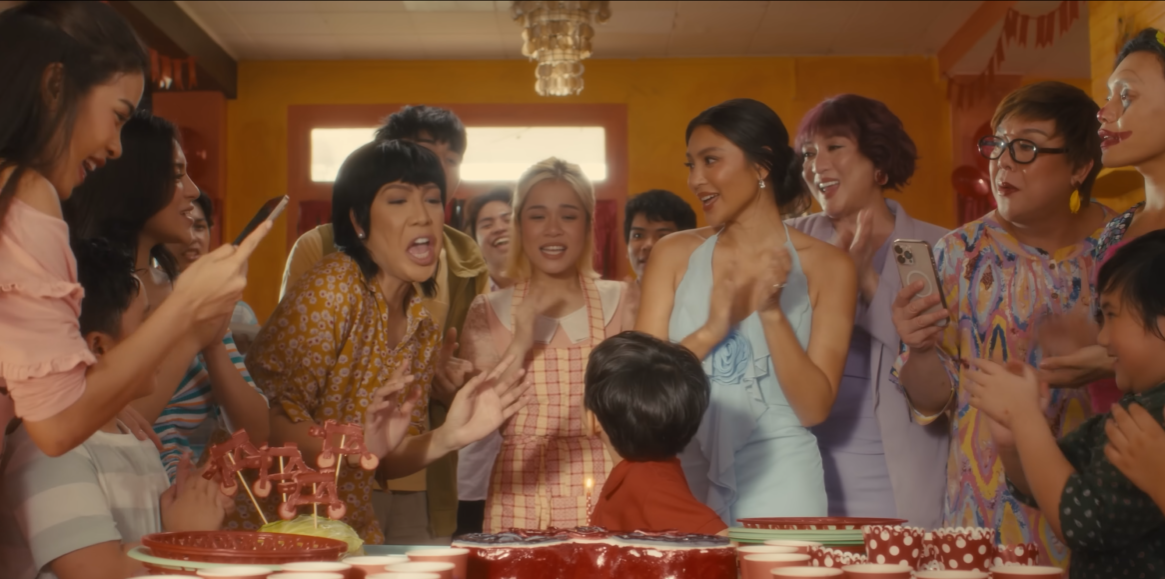Tokyo Story, on the inevitability of change and its universality
Tokyo Story, on the inevitability of change and its universality
Shukichi and Tomi in Tokyo Story | Feature art by Abigail Manaluz
"Day passes and night comes, yet nothing happens, and I feel a kind of loneliness. My heart seems to be waiting for something."
I remember watching Tokyo Story for the first time when I was fifteen from the DVD that my grandfather lent me. I will never forget how that film made me feel—it was achingly beautiful. So, when I found out that it would be screened in this year’s Japanese Film Festival at Shangri-la Red Carpet Cinema, I knew I couldn’t miss the chance to revisit it. I still remember the film vividly even through all of its black and white beauty, and during the span of a few hours, it led me to ponder beyond my recollections of the film and how my perceptions not only of it but also of myself have changed. Rewatching the film, I find myself relating to the elderly parents, Shukichi and Tomi more than before. Perhaps because now, I understand the harsh realities of aging and familial bonds that have allowed me to recognize how they feel better—how old age is such a dreaded thing for most people as it holds that painful notion that they are becoming a weight on their children’s shoulders.
I suppose what I want to touch on in this feature is its universality. Tokyo Story displays the genuine yet harrowing facets of the human condition. It offers an illustration to the truth that when you're caught up in the life you've created for your own well-being, realize that you could lose what you've had the longest. I think above all else, Tokyo Story is all about the nature of change and perhaps accepting that maybe some things in life are bound to shift for which we will not always have control over—and during those changes in life there’s an essential value as we go on to contemplate and reflect, as we go on and lose people.
Tokyo Story explores the limits of finite time and the inevitable passing of age, while offering a subdued yet profound examination on the gaps between tradition and modernity. There’s such universality in the way it reflects the subtle sorrow and grief implicit in the irrevocable changes within our familial bonds. Often quiet in its moments and open for contemplation, there’s subtlety in capturing the minute details and intricacies of family dynamics. I found myself relating to Noriko, her musings on her individuality and the things she went through. Tranquil yet hurtful, Ozu carefully makes use of his pillow shots to frame his characters as vulnerable with the unrelenting progress of time prominently displayed—These frames carry profound meanings not only to its visuals but also creates significance to its characters.
Perhaps it’s the reason why I love this film so much, it all stems from its universality of family dynamics—it’s relatable. And the fact that it connected to me more now that I’m older just shows why cinema is an effective artistic medium for conveying the universal human experience across historical and cultural contexts. As everything dissolves, from the decay of innocence as the resentful youth emerge, and that indoctrination into reality that occurs as one matures. Rarely does a film make you long for the things you’ve lost and grown apart from. Seeing the film this past week made me realize how true and close this film is—how my perception of the film had evolved over the years, from the youthful arrogance of the teenage self just like the children in the film to the empathetic understanding of adulthood, Tokyo Story served as a mirror reflecting my own journey of growth.
Tokyo Story was screened last February 2 & 8 at the 2024 Japanese Film Festival PH in Shangri-la Plaza Red Carpet Cinema.


















